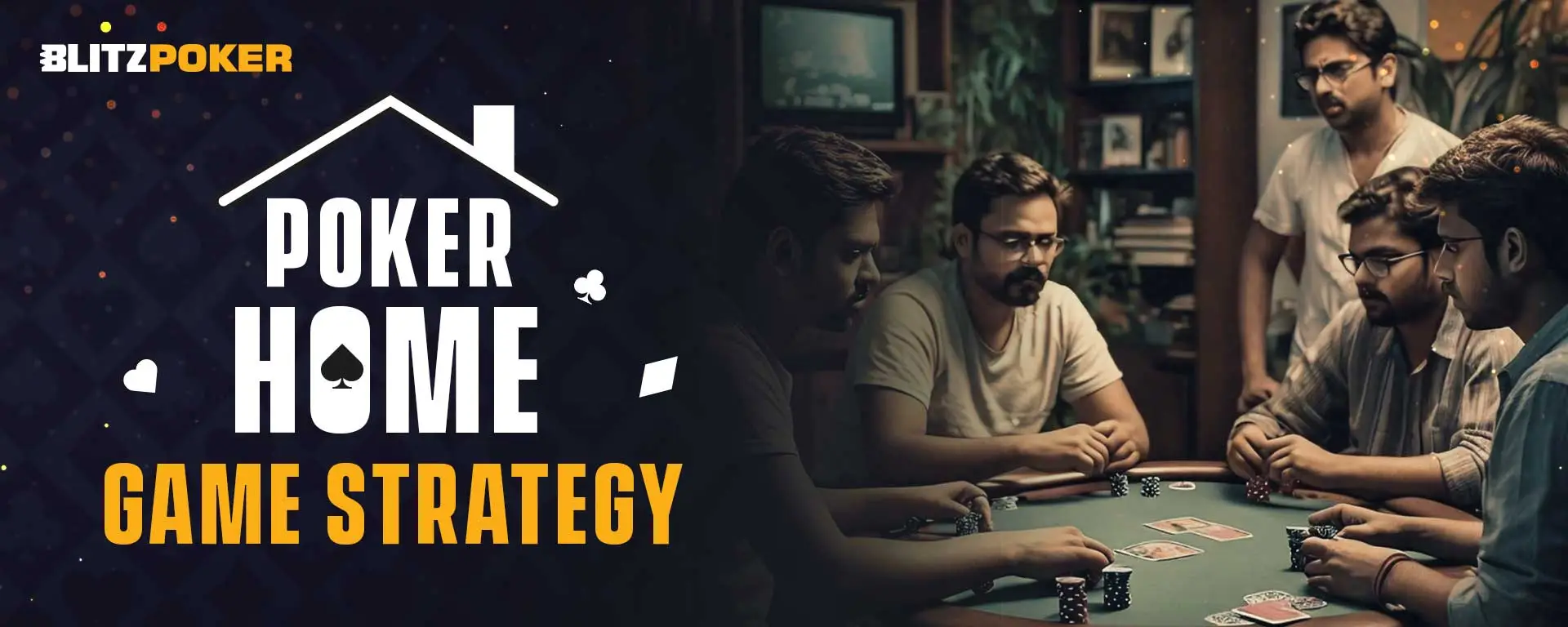Poker Home Game Strategy
People usually learn to play poker at home games. These games are often the starting point, though online poker is also a great way to learn. The skill level in home games is usually low because most people play just for fun. If you want to get better at poker, there are simple tricks and strategies you can use. These can help you improve and hopefully beat your friends. Few things are as therapeutic as a home poker game with your friends. As the saying goes, the only thing better than playing poker and losing is playing poker and winning. For a top-notch online poker experience, try BLITZPOKER, the ultimate online poker platform in India.
Play Tight When Others In The Home Game Play Loose
In a home game, chances are the players will be loose. Add a few beers, and they’ll loosen up even more. To win, take the opposite approach and tighten up.
In a typical 6 to 9-player home game, play around the top 15% of all hands dealt. Even if some friends at the home game might not like it, always raise if you are the first to enter the pot preflop.
With strong hands like AA, KK, QQ, AK, etc., always re-raise if somebody has already raised. This might be a bit confusing at first, so here is what the top 15% of all hands dealt actually looks like.
Poker Home Game Strategy: Never Show The Bluff
Bluffing successfully feels great, but showing your cards gives away free information to everyone. Opponents can figure out your tendencies and physical tells. Keeping them guessing is key to winning. Don’t show your bluff. It keeps them thinking and gives you an edge. When they ask, just smile and say to call next time.
Because next time, it won’t be a bluff!
Opponent Categorisation
Understanding your opponents can be tricky, but it helps to categorise them.
Start by splitting them into these basic types:
- Tight player: Doesn’t play many hands. Folds often.
- Loose player: Plays many hands. Calls too much.
- Aggressive player: Plays a normal amount of hands but bets a lot.
Each type requires a different strategy.
Against a tight player, fold if they start betting heavily. With an aggressive player, call if you have a good hand.
People can be unpredictable, so they won’t always fit neatly into these categories. Still, thinking about your opponents this way helps you focus on more than just your cards.
Better Being Sober When Playing
If you often win at home poker games, it’s usually because of luck or your friends’ mistakes. Drinking alcohol might help you relax and keep you in a good mood, but it can also mess up your decisions and usual poker strategies.
Some drink to socialise, and some think drinking gives them confidence. But how often do you see someone get too confident and aggressive after drinking, only to lose badly?
At first, you might feel excited and sharp. But as time goes on, you’ll start losing chips, and your game becomes unstable. So, avoid drinking and watch how players who drink behave.
Poker Home Game Strategy: Seek a Second Opinion
Take notes on better players and ask for their opinions. Discuss each hand you played. A fresh perspective can inspire you. Don’t worry if they seem stingy; good players love to share. They also want to improve, just like you. Good communication often leads to true friendship.
Once you have feedback from great players, summarise and organise the information. Form your own poker strategy, practice it, record the results, and adjust if needed. Repeat this process.
Soon, you’ll quickly understand other players’ styles after just a few hands.
Be Mindful of Your Position
Position is key in poker, especially when pots are going multi-way. So, you should always aim to have a position over other players.
It might seem like you can’t control this since you rotate through positions each orbit, but that’s not entirely true.
To start, you can fold more hands in early positions and the blinds. This way, you avoid being out of position after the flop.
Hands like KT or QJ unsuited are weak when you’re under the gun (UTG), as are hands like AT or A9. They’re tough to win with in a five-way pot when you’re first to act.
Instead, focus on playing more hands when you’re on the cutoff or the button. You can also try to gain position by 3-betting small against middle position openers with decent hands to make players in position fold.
However, be aware that many home game players are very sticky and hard to shake off pre-flop, no matter how much you raise.
Don’t Slow Play Your Hands
Slow playing big hands is useful against strong, aggressive players, but it’s not needed in home games.
Home game players are often willing to call your bets with weak hands, so there’s little reason to slow play. Moreover, slow playing in multi-way hands is risky because it gives opponents a chance to catch cards and take the lead.
Since it’s hard to know what people have before the flop, making some fold and charging others to see more cards is beneficial.
You might occasionally slow play the flop with strong hands if very aggressive players are involved. But even then, these players might try to bluff-raise you, so why not just bet outright?
